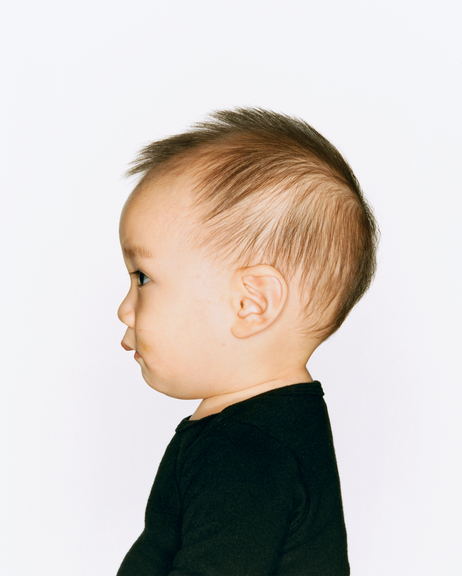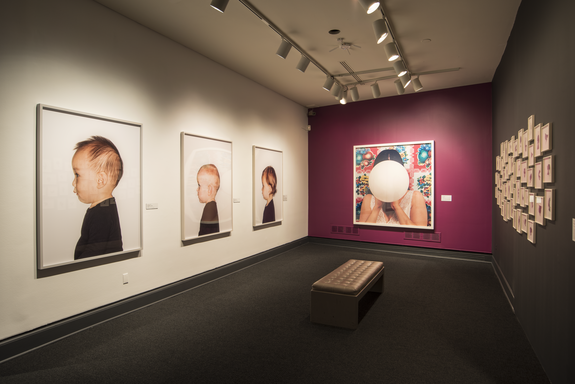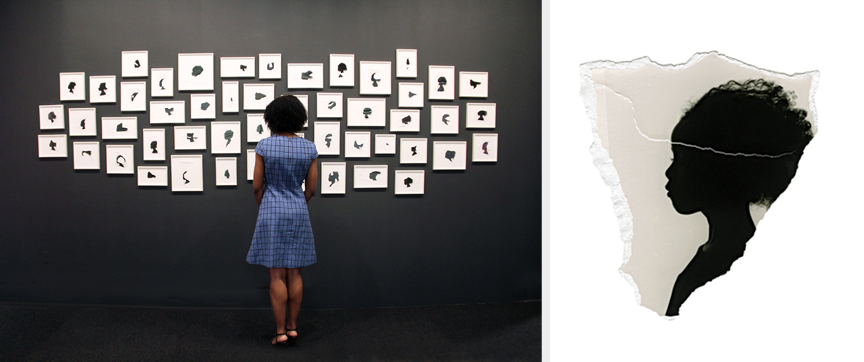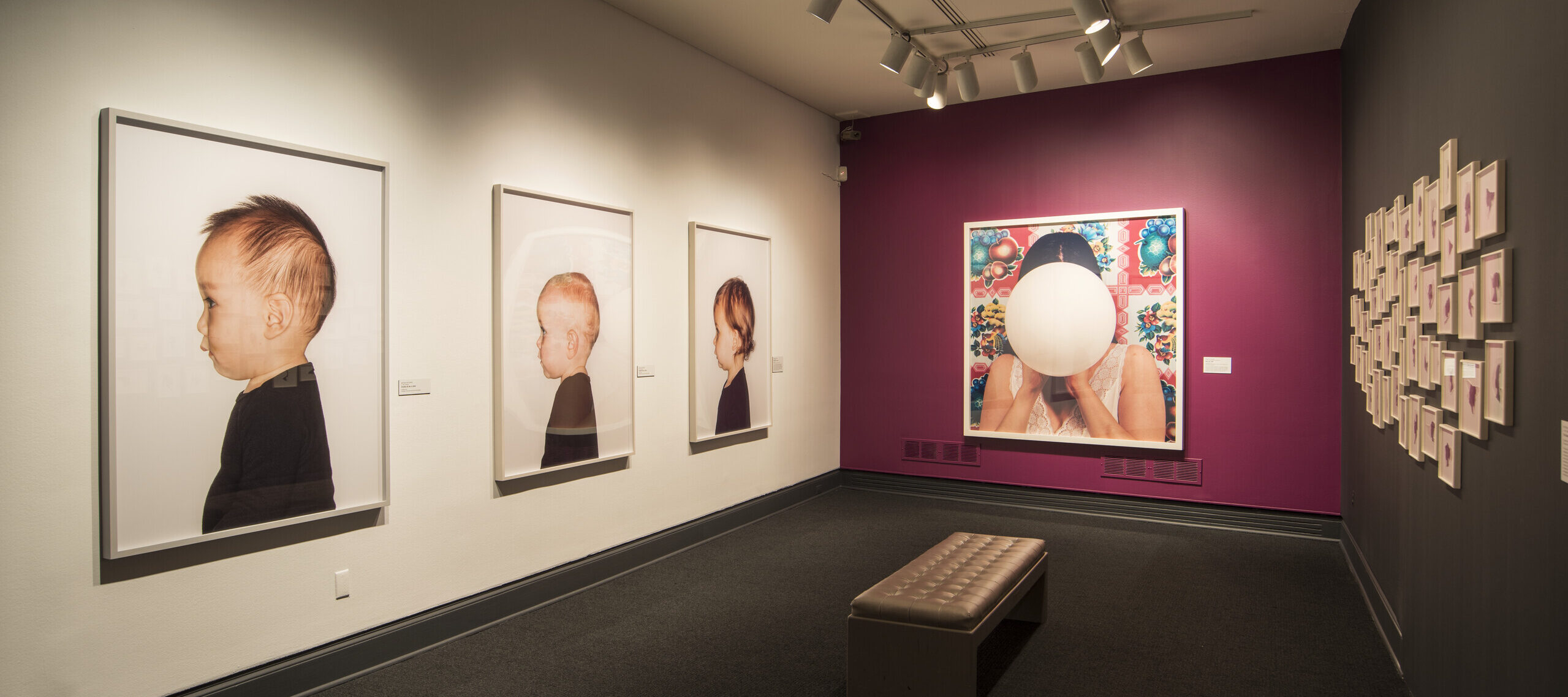In celebration of NMWA’s 30th anniversary, and inspired by the museum’s focus on contemporary women artists as catalysts for change, Revival illuminates how women working in sculpture, photography, and video use spectacle and scale for expressive effect.
Bettina von Zwehl (b. 1971, Munich, Germany)

As a teenager, Bettina von Zwehl photographed friends for fun. Ever since she has been fascinated with the human form. Von Zwehl produces tight, focused portraits that seek to capture the spirit of her subjects. Although she initially favored eliciting natural responses from her sitters, von Zwehl shifted her focus toward carefully crafted profiles. The artist’s deep appreciation of classical portraiture found on medals, coins, and painted miniatures drives her photographs, combining traditional aesthetics and modern art forms. Striving to escape sentimentality, von Zwehl constructs portrayals that limit the view of her subjects’ faces without robbing them of their individual characteristics.
The Artist’s Voice:
“For almost a decade I have been researching the human profile and the hierarchic approach to portraiture that was applied during the Italian Renaissance. There is an uncanny quality to viewing a person in profile, related to what remains invisible and untold. This method of representation may have a cold, rigid aspect, with no indication of the subject’s true character or emotion. To me it is one of the most powerful ways of representing a person.”—Bettina von Zwehl, in an artist statement

Revival Highlight:
Von Zwehl’s works in Revival demonstrate her capacity to work on both a small and a large scale. While three portraits from her series Profiles III (2005) loom over the viewer, presenting each child’s profile in extreme detail, The Sessions (2016) on the opposite wall displays 50 small, uniquely torn images of a young girl’s silhouette.
Von Zwehl upends traditional ideas about portraiture as a direct means for exposing character and emotion. Her larger-than-life images of toddlers in Profiles III seem to capture some personality traits, but their profile format keeps much information hidden. Viewers are unable to meet the child’s gaze in each portrait. Von Zwehl’s subjects appear independent, their existence separate from adults.

Drawing inspiration from painted miniatures made in Victorian England, von Zwehl conceals her subject’s identity by depicting her in silhouette for The Sessions. Each torn profile reveals a different aspect of the girl, showcasing the complexity of her character through many variations on a single take. This work’s title and the 50 photographs composing it collectively refer to psychoanalytic sessions and the duration in minutes of each meeting. Inspired by Anna Freud’s pioneering work in child analysis, von Zwehl’s photographs embody Freud’s belief that the mental health of even the youngest child is complex, vital, and deserving of support. By rejecting the reduction of children to relational beings and preserving their autonomy, von Zwehl hints at society’s fragmented understanding of its youngest members.
Visit the museum and explore Revival, on view through September 10, 2017.
